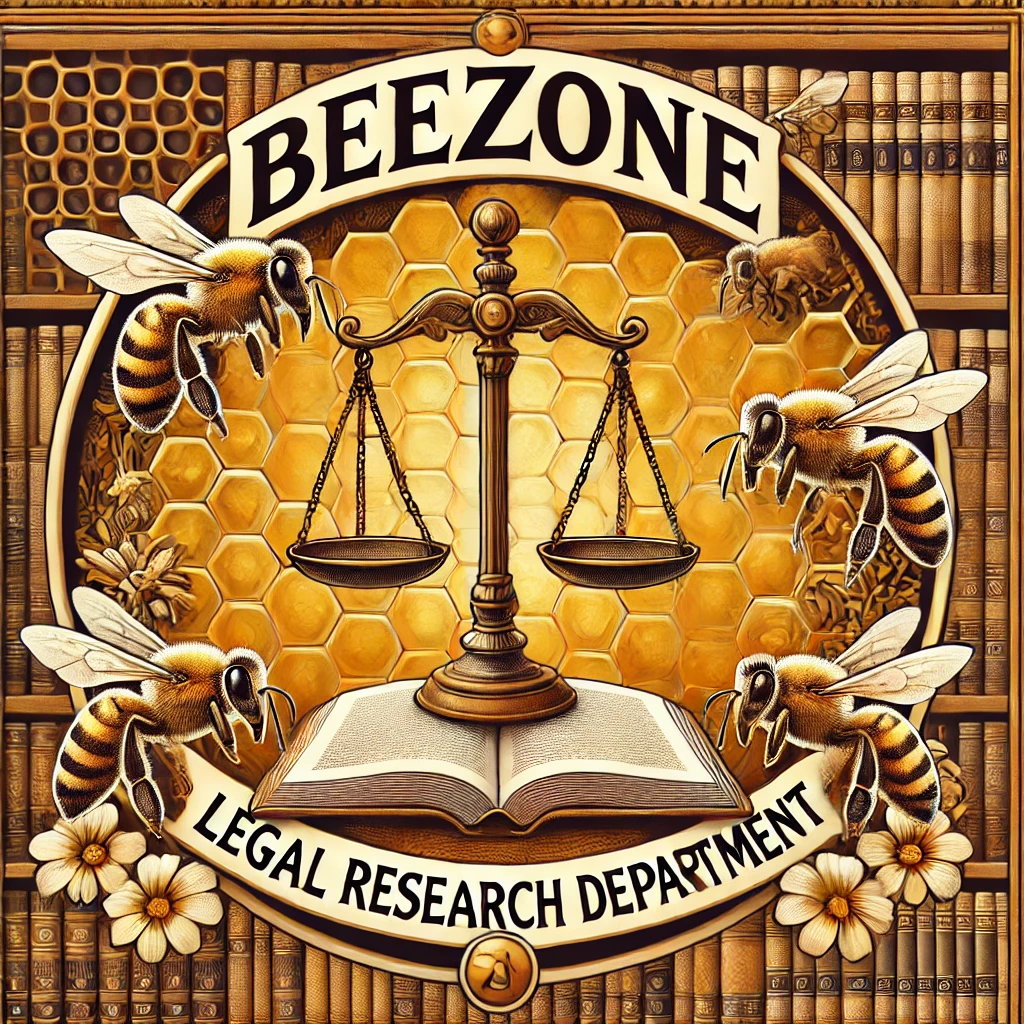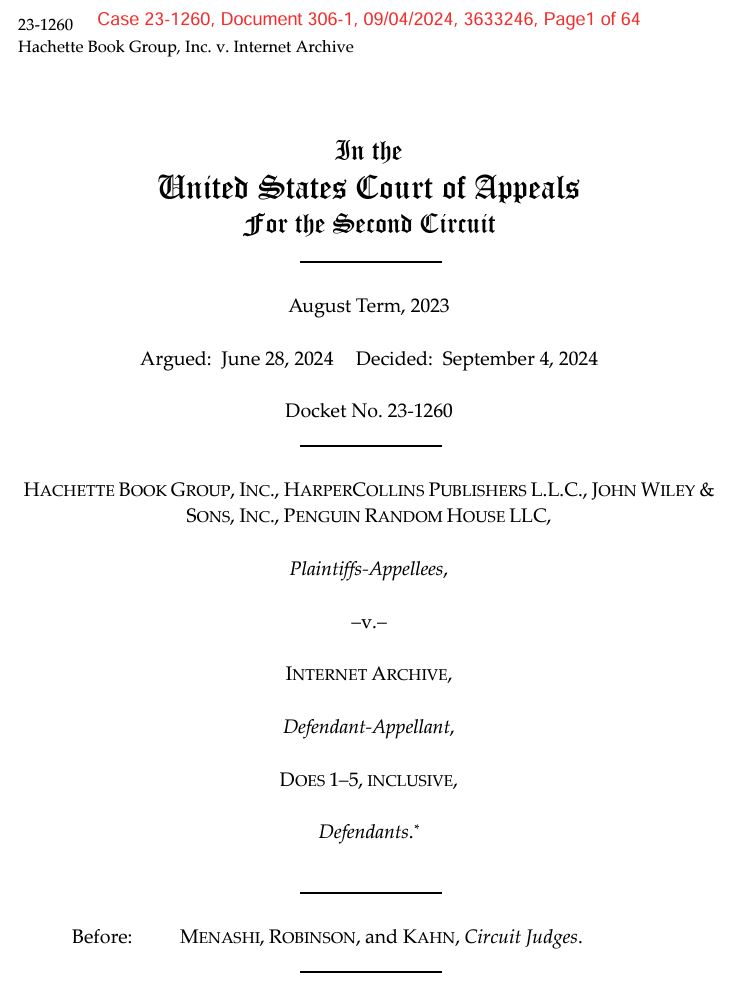Beezone Legal Research Department

Given the Ruling of
United States Courts Opinions. United States Court of Appeals for the Second Circuit. OPINION, affirming judgment of the district court, by SJM, BR, MAK, FILED.[3633246] [23-1260].
23-1260
Hachette Book Group, Inc. v. Internet Archive

Wednesday, September 4, 2024
QUESTION: “Is it “fair use” for a nonprofit organization to scan copyright-protected print books in their entirety, and distribute those digital copies online, in full, for free, subject to a one-to-one owned-to-loaned ratio between its print copies and the digital copies it makes available at any given time, all without authorization from the copyright-holding publishers or authors? Applying the relevant provisions of the Copyright Act as well as binding Supreme Court and Second Circuit precedent, we conclude the answer is no.” Are there ANY conditions by which a non-profit library CAN loan out digital copies of printed copyrighted books?
ANSWER: Yes, there are conditions under which a non-profit library can loan out digital copies of printed copyrighted books, but they must navigate the rules of Controlled Digital Lending (CDL) carefully to comply with copyright law. Under CDL, a non-profit library can generally loan digital copies of copyrighted books if they follow these guidelines:
1. One-to-One Owned-to-Loaned Ratio: For each digital copy lent out, the library must own a physical copy of the book. This ratio means that if the digital copy is out on loan, the physical copy cannot be available for another user, effectively maintaining a one-to-one match.
2. Limited Access to the Digital Copy: Access to the digital version should be restricted so that only one user can access it at a time. This mimics the limitations of a traditional physical lending model.
3. Technological Protection Measures: The digital lending system should incorporate protections to prevent unauthorized copying, sharing, or distribution of the digital files. Libraries often use special software to control access and prevent downloads to ensure compliance.
4. Non-Commercial Purpose: The digitized works must be loaned out for non-commercial, educational purposes, aligned with the mission of the non-profit.
5. Reasonableness of Purpose: The library’s purpose in digitizing and lending the book must reasonably fall within fair use principles, such as providing access for research or scholarship, but this may be subject to interpretation and could vary based on context.
These conditions are intended to balance the library’s mission of accessibility with the rights of copyright holders. However, recent court rulings have shown that these guidelines are still contentious, and the legal landscape may continue to evolve as courts weigh the complexities of fair use and digital lending practices.